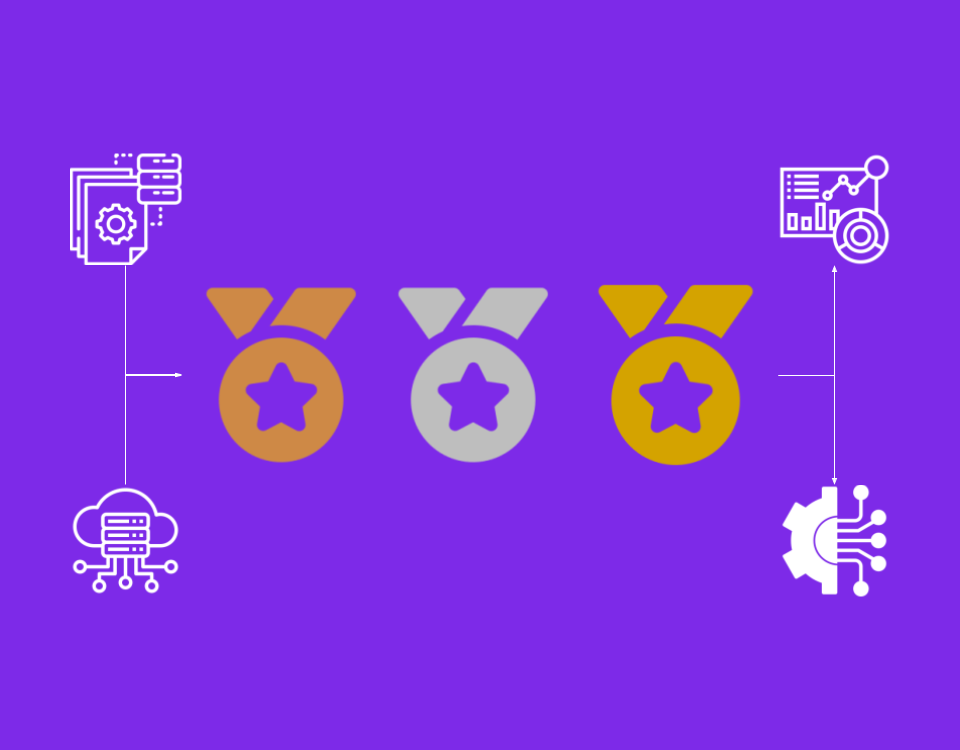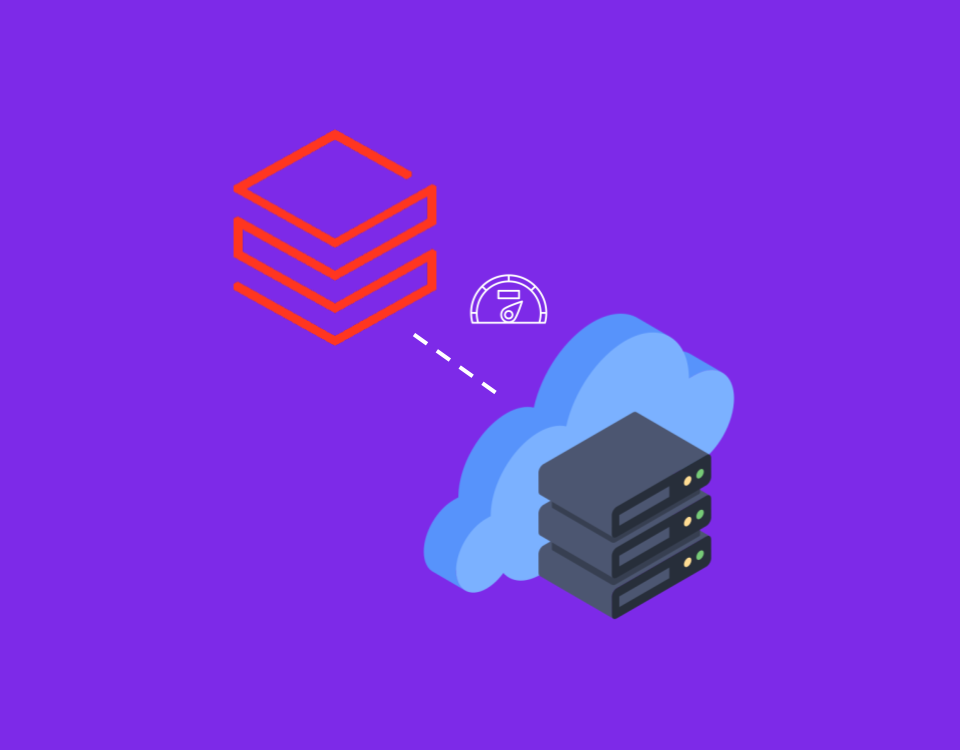In today’s technology-driven world, cloud solutions and services have become essential for the success and continual progress of any enterprise. Cloud platforms such as Microsoft Azure are redefining the way business is done through their scalable and secure enterprise applications. In recent years, many cloud platforms have come up with different features and services but Microsoft Azure has emerged to become the most popular and versatile cloud platform for enterprises. In this blog, we will do a comparison among Microsoft Azure competitors and lay out the benefits and advantages of Microsoft Azure.
Understanding Microsoft Azure: Why should you use it?
With Azure cloud services, enterprises can build, deploy, and manage complex applications rapidly and with ease. Unlike Azure competitors, Azure supports a huge range of programming languages, databases, frameworks, and operating systems, allowing organizations to leverage tools and technologies they use and trust.
For a small to medium enterprises whose aim is to maintain basic IT services like AD, DNS, network security, and the development and deployment of advanced business apps, there is no better platform than Azure because it can integrate easily with existing resources like windows 10 computers, SharePoint, .NET apps, office 365, and teams, allowing an uninterrupted transition of many of those services to the cloud. Hence, when it comes to managed services and their integration with each other, the advantages of Microsoft Azure make it a clear winner.
With Azure, you can add cloud capabilities to your existing network through its PaaS model or delegate your computing and network needs to Microsoft with its IaaS model. Both options provide secure and robust access to your cloud-hosted apps and data. Azure also provides a wide range of software and services that are designed to meet all your needs through a single platform.
Comparing Microsoft Azure with its competitors
Microsoft Azure vs Amazon Web Services
The biggest competitor of Microsoft Azure is AWS. Amazon Web Services (AWS) is a comprehensive and widely adopted cloud platform, offering over 200 fully featured services for enterprises. AWS allows application providers, ISVs, and vendors to rapidly host their applications. You can use the AWS Management Console or the web services APIs to utilize AWS’s application hosting platform. By using Auto Scaling, Elastic Load Balancing, and a range of AWS tools you can scale up or down your application, based on demand.
AWS offers many services that make it reliable, like the ability to automatically recover from failure or disasters. Services such as Amazon DynamoDB and Amazon S3 store the data in three separate zones so that users can always recover their data from any of these zones in case of failure. With the AWS EC2 service, you can construct your virtual environment by choosing and setting up your preferred OS and applications.
When compared to Azure, AWS is quite costly. The cost of business support and the premium support is very high. The price of AWS services varies according to factors such as the land cost, fibre, electricity, and taxes from region to region. The cost increases when you need additional tech support. Another disadvantage of AWS is that it sets default limits on resources which can vary from area to area. It also provides limited information of the utilization of resources, managed by its EC2 and VPC console. Security is another area in which AWS lacks because it limits the security features based on the subscription model and region.
Microsoft Azure Vs Google Cloud Platform
The second competitor of Microsoft Azure is GCP. Since Google Cloud Platform (GCP) is a newcomer, it naturally offers a limited number of services and doesn’t have the same global presence and spread of data centers, as compared to AWS and Azure. However, this platform specializes in three main domains of technology: big data, AI/ML, and analytics. It is stable, offers good scalability features and has low network latency.
Price-conscious companies tend to use GCP as a secondary vendor in a hybrid solution, along with AWS and Azure. But GCP is open-source and DevOps-centric. Hence it does not integrate as well with Microsoft Azure. It has good integration with Google services and provides great analytics and storage features.
Compared to Azure, GCP’s majority of components are built and based on Google proprietary tech. It offers no real control over the virtual machines. Also, the range of programming languages supported is quite less. It has fewer data centres and Google DNS is slower compared to other vendors. Transitioning away from the existing platform to the GCP is a complex process.
Benefits of Microsoft Azure
On examining Microsoft Azure competitors, we found that there are some advantages of Microsoft Azure that makes it suitable for enterprises of all sizes. These are –
- PaaS and IaaS options –
Azure has an edge over its competitors through its unique combination of IaaS and PaaS services. IaaS lets enterprises to outsource their infrastructure on Azure and only pay for what they use, and PaaS enables them to develop their own apps and solutions without having to buy and manage the underlying framework. Certified Azure consultants like Cloudaeon can work with enterprises to leverage Azure’s PaaS & IaaS to develop apps and solutions for accelerated business growth.
- Excellent hybrid capabilities –
Azure provides easy mobility and a robust and consistent platform between the on-premises and the public Cloud. Azure provides a wide range of hybrid connections including virtual private networks (VPNs), content delivery networks (CDNs), caches, and ExpressRoute connections to enhance usability, availability, and performance.
- Minimized development costs and time –
Enterprises can quickly set up a reliable DevOps environment and CI/CD pipeline to speed up and streamline their development process. Everything from development to testing to integration to delivery can happen from inside a single unified environment.
- Industry-standard security –
Azure offers multi-layered security that enables businesses to utilize the full capacity of remote physical data centers without compromising their data. On the user’s side, data protection is ensured through multi-factor authentication, strict password requirements, and training on the latest threats. Azure’s Security Center continually monitor your activities and uses machine learning to find out vulnerabilities and threats.
- Enhanced flexibility and scalability –
In Azure you can upgrade your service levels and later reduce them as per your changing needs with just a single button click. Companies are needed to pay for only what they use. Azure Cloud is committed to open source. Hence most of the languages and frameworks are supported by Azure. This gives developers the freedom to be innovative and to develop their apps in the most suitable programming environments to them.
Conclusion -
Every cloud migration project is unique and has its own set of needs and challenges. Many large businesses opt for a multi-cloud approach followed by a hybrid solution strategy (combining public and private clouds).
When searching for the right cloud platform for your enterprise, be sure to inspect your specific requirements, workload range, and budget constraints. Each vendor, be it Azure or its competitors such as AWS and GCP has their own pros and cons. Microsoft Azure may be a cost effective and feature-rich option but sometimes an enterprise can also benefit greatly by the combination of all three cloud providers.




